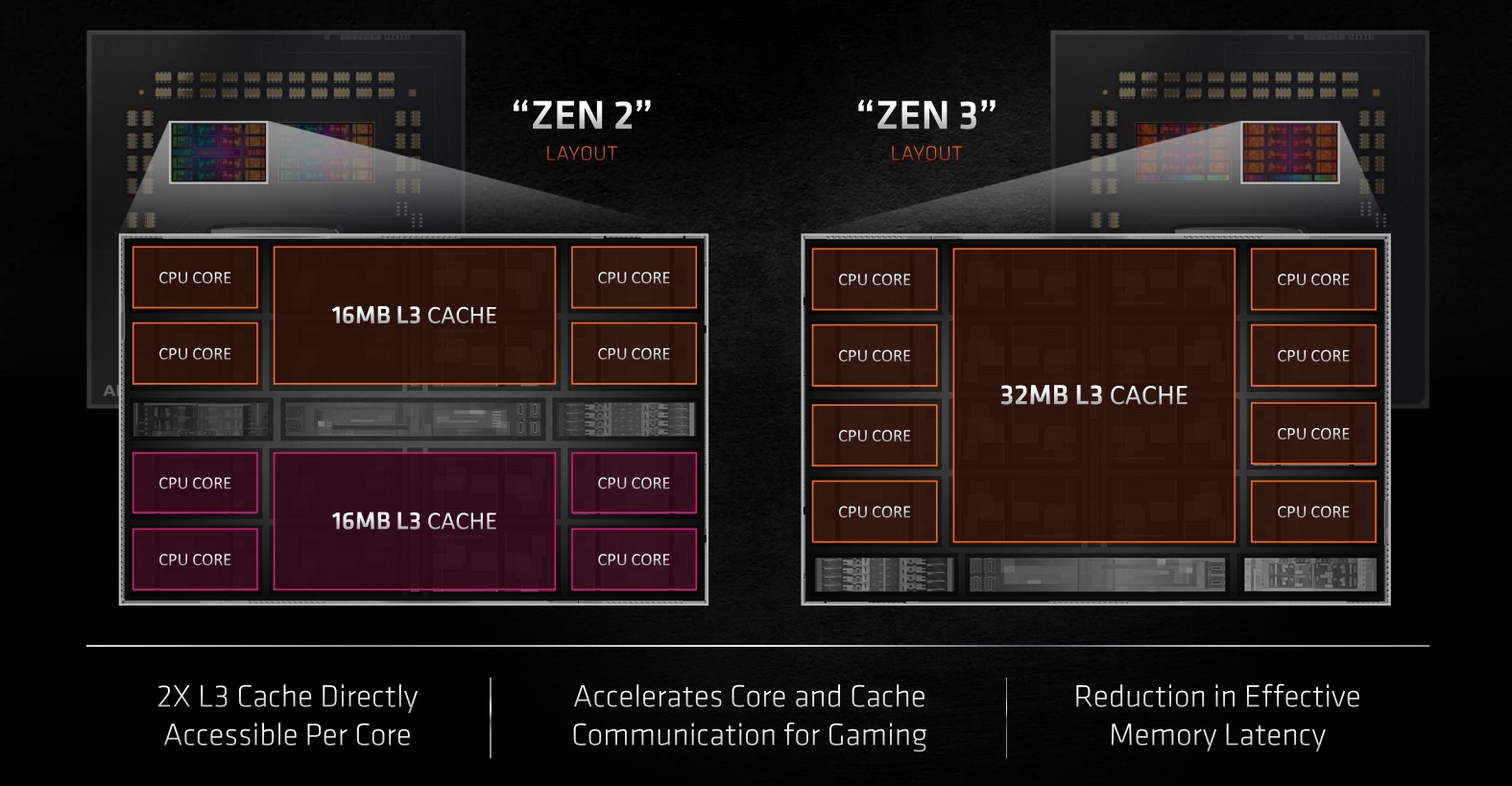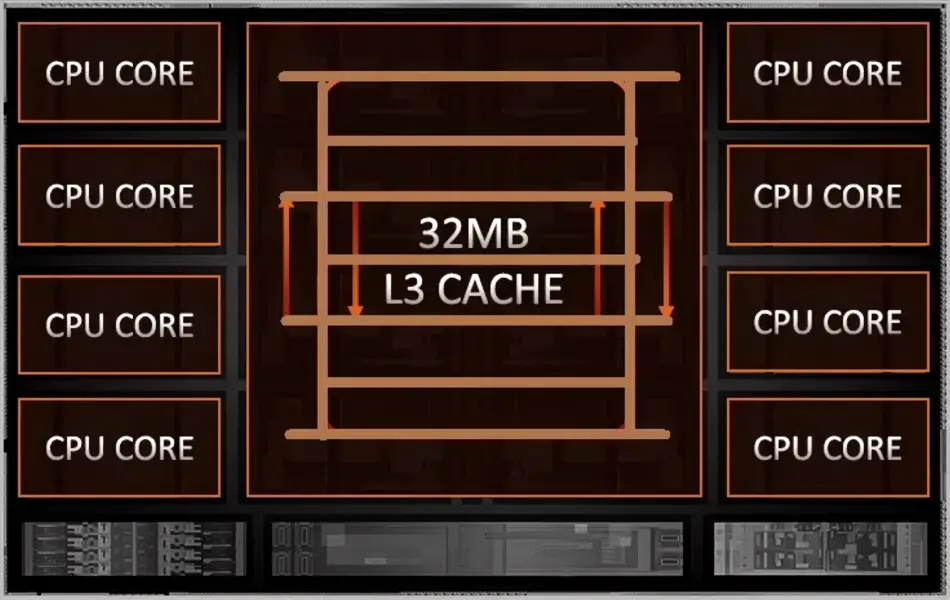We have already heard rumors and leaks about Zen 5 being up to 25% faster in IPC compared to Zen 4 but up until now, we didn’t know the actual die design of Zen 5 CPUs that result in this significant difference.
In the recent leak by Youtuber AdoredTV, Zen 5’s secret lies in its Cache memory and it is so good that you can expect a dramatic increase in both gaming and productivity performance we haven’t seen before.
According to the leak, the Zen 5 is going to bring a completely new cache design to improve the communications between the cores and will also uplift the IPC performance.
Typically the older Zen architectures implemented different types of methods for cache access and it was until the launch of Zen 3 that was the first to feature the bi-directional ring bus design so that each core could access all the 32MB of L3 cache memory.

This is also implemented on Zen 4 but the problem here is the increased latency for communication between the cores. So, Zen 5 is supposedly being reworked and will feature the Ladder cache system that would reduce the inter-core latency significantly.
This means each core will now be able to communicate faster with the others and that should have a good impact in multi-threaded applications.

Not only that but AMD is also reportedly bringing even higher L2 cache memory. If you are familiar with the cache hierarchy, then you might know that the L2 cache is way faster than the L3 one but is generally much smaller in memory capacity.

As CPUs grow more in cache size, they can access more data to execute the next instruction quickly. As per the leaker, the L2 cache is going to increase by 2 to 3 times for each core which is a massive improvement over Zen 4. Zen 4 only provides 1MB of L2 cache per core but Zen 5 will bring 2 or 3MB of L2 cache per core which will go up to 48MB of total L3 cache on a 16-core CPU.
As predicted, this alone will increase the multi-threaded performance of Zen 5 CPUs by anywhere from 4 to 7%. And the best part is that the latency will remain as it is which is quite amazing because typically as the L2 cache size increases, the latency also increases but the Zen 5 is an exception here and this is going to have positive impacts on the performance.






